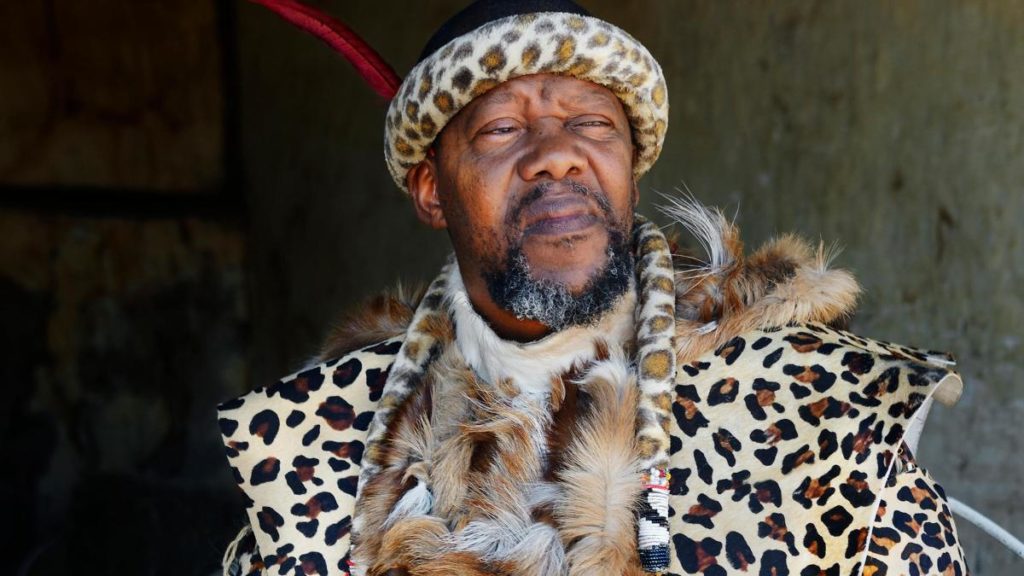Outspoken Ntabazinduna Chief, Felix Nhlanhlayamangwe Ndiweni, has lambasted the government for failing to designate community radio stations to Ndebele communities.
He defined this segregation as tribalism, meant to divide the country.
His criticism comes after the Broadcasting Authority of Zimbabwe (BAZ), a first since independence, invited applications for 10 community radio stations.
The community radio licences that are up for grabs are for the following places: Hwange and Victoria Falls; Beitbridge and Shashi; Mbembesi; Manama and Legion; Empandeni, Maphosa, Ndolwane and Plumtree; Binga, Kamativi, Kariba, Mapengolo and Siabuwa; Chikombedzi, Chiredzi, Rutenga, Mahenye and Malipati; Chipinge, Chimanimani, Gwendingwe, Rusitu, Chibuwe; Shamva and Alaska as well as Rukotso and Susamoyo.
But Chief Ndiweni argues that the government has neglected the Ndebele communities from the opportunity to own a station that would speak to their issues.
“Many Ndebele communities and districts were denied community radio stations, for example, Matopo, Filabusi, Esigodini, Nyamayendlovu, Nkayi, Tsholotsho, Lupane, Silobela, EMaboleni and others whereas the following nations were allocated community radio stations Venda — Beitbridge, Sotho — Manama, Xhosa – Mbembesi, Tonga – Binga, Nambya – Hwange, Shangani – Chiredzi Malipati, Shona – Rutenga, Ndau – Mahenye, Kalanga – Plumtree Mayitengwe,” he said in a press statement.
“Now what about the huge tracts of land and communities in the other Ndebele speaking areas. What has been provided for them? Nothing is the answer to that question. The Ndebele nation here was the first Rainbow nation in this southern African region. That is why the other nations, found within the Ndebele Nation, still have their own languages and cultures, even though they are a part of the broader Ndebele nation.”
Chief Ndiweni recalled that in 2017, he attended a Parliamentary committee meeting on the state of the media in the country where he implored the government to consider opening up the airwaves and licensing more radio stations and television stations that broadcast in local languages.
“We were advancing the notion of a liberalised media, within the country, with respect to the digital airways. This means that we can carry hundreds of channels and stations throughout the nation. We were asking for many new stations that would be allowed to speak only their native languages on the radio and TV,” he said.
But the chief noted that the Chair and Secretary of the Parliamentary Committee on Media were ‘nervous’, about this idea, as they thought such a development would encourage tribal tensions in the country.
“They were more comfortable with the idea of a singular country, where all stations speak all languages. Our position was one cannot encapsulate all that a nation has to offer, in half or a quarter, off a broadcast. Even a single complete radio station would have a challenge to capture all that a nation has to offer,” he said noting the media committee chairperson responded they would come back to them again.
Chief Ndiweni blatantly labelled the selection process as “tribalism,” which sought to disadvantage the Ndebele community.
“The Administration has tried the well-established divide and rule method, in this selection process. This is blatant Tribalism or as we choose to call it, working against Ndebele nationalism. It is with regret that this Administration chooses to continue working in this manner,” he said.
“The Ndebele nation is the Ndebele nation. No matter whatever strategies are conjured up, they will not succeed in dividing the Ndebele nation. The bonds that form the Ndebele nation are complex and intricate. They cannot be unravelled by what The Administration is trying to do. The Ndebele are many but they are one, bound in history, bound in hardship, bound in similarities of language and culture, bound in gallantry at Gadade 1893, bound in the darkness which cannot be defined and comprehended, that is The Ndebele Genocide And so is a nation defined.”
He, therefore, called on the government to correct the allocation process, as the segregation of the Ndebele communities from having their own radio station was unacceptable.
“Logic says that this media allocation must be corrected. It cannot stand as it is, otherwise, it will be a rallying call to fight the latest profound example of tribalism, emanating from this Administration. The technology can accommodate many radio stations easily. What we are being presented with is really unacceptable and must be challenged, if this Administration refuses to see reason on this issue,” said Chief Ndiweni.
He added that as a chief, he was for nation-building, not building tribes.
“We have 16 official languages in the country, which means that we have 16 recognised Nations in our country. They have complete languages, culture, traditions, practises, norms, dress codes, cuisine, laws, history, songs, dance, theatre and so on. Which means we are talking about nations, not tribes.”
Applicants who want to apply for the community stations are expected to pay an application fee of $8 500.
If successful, the applicants would be required to pay $17 000 per annum in licence fees.
March 20, 2020, has been set as the deadline for submitting applications by the licensing authority set.

